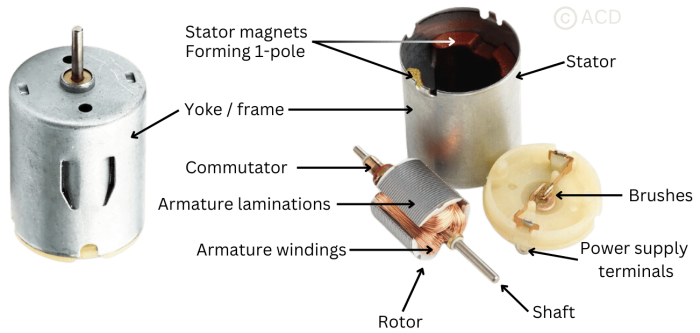Motor-Drives¶
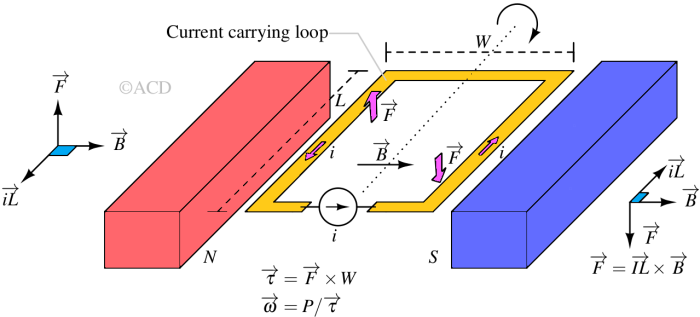
The torque of a DC motor is proportional to the product of the armature current and the flux per pole, determining the motor’s rotational force.
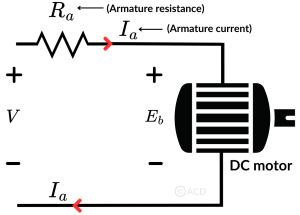
Back EMF in a DC motor is the voltage generated as the armature rotates, opposing the supply voltage. It regulates motor speed and limits current.
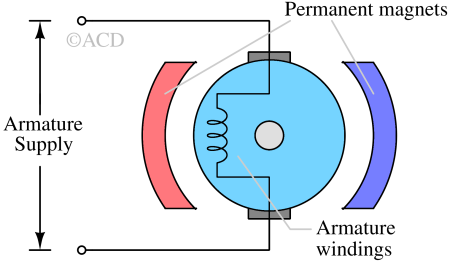
DC motors are classified into types like brushed, brushless, series, shunt, and compound motors, each offering different speed-torque characteristics.
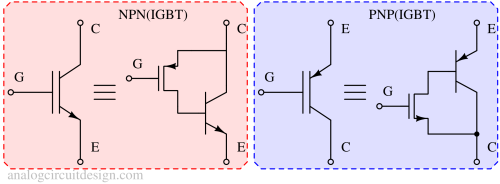
An IGBT is a semiconductor device that combines the high input impedance of a MOSFET with the low conduction loss of a bipolar transistor, used for switching and amplification.
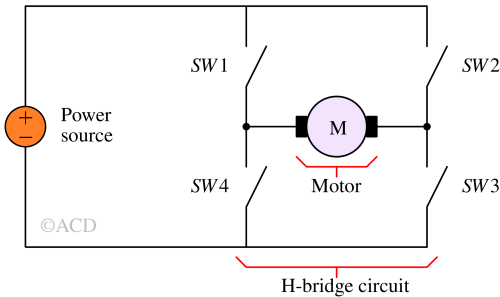
An H-bridge circuit allows voltage to be applied across a load in either direction, commonly used to control the direction of DC motors.

An ESC (Electronic Speed Controller) controls a brushless DC motor by regulating the voltage and current to its phases, enabling precise speed and direction control.

DC motors convert direct current electrical energy into mechanical motion, with speed and torque controlled by voltage and current.
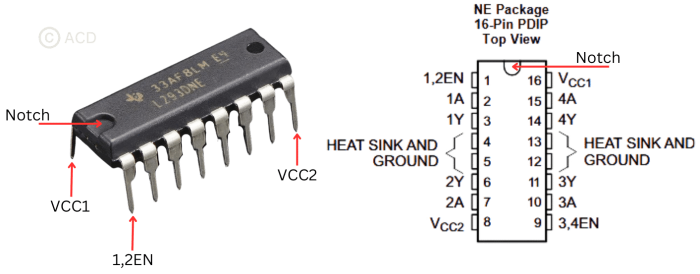
The L293 is a popular H-bridge motor driver IC that allows control of the direction and speed of DC motors and stepper motors.
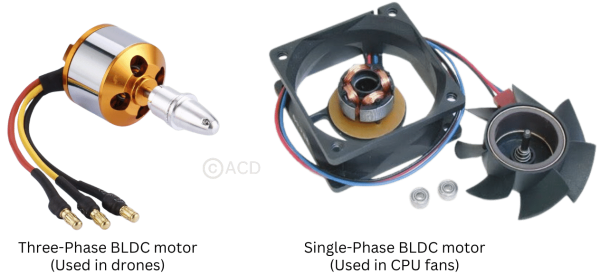
A brushless DC motor works by using electronic commutation to energize the motor windings in sequence, causing the rotor to rotate without brushes.
